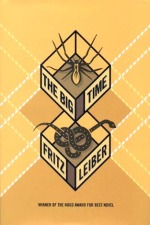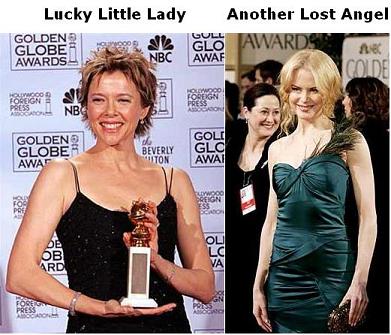Deep background: One Night in Bangkok.
See also…
In the catacomb of my mind
Where the dead endure—a kingdom
I conjure by love to rise
— Samuel Menashe, as quoted by
Stephen Spender in a review of four
different poets, "The Last Ditch,"
The New York Review of Books , July 22, 1971
"…the ghost reveals that the beggar
is in fact a sorcerer, a necromancer
who is preparing the mandala in order
to achieve an evil end. The ascetic
intends to bind the ghost to the corpse,
place it in the center of the circle,
and worship it as a deity."
— The King and the Corpse (from synopsis in
"How Many Facets Can a Non-Existent Jewel Have?")
Menashe died on Monday, August 22, 2011.
Related material by and for two other poets
who also died on Monday:
See also an excerpt from Kerouac I cached on Monday, and
Men ask the way to Cold Mountain
Cold Mountain: there's no through trail .
For Nicole (see Jan. 9).
"Ninth of January, Two Thousand… and Eleven." — Andrew Keeling
This, with the entry on Nicole from January ninth,
suggests the following dialogue from
"Escape to Witch Mountain" (1975)—
Where are the others?
Other kids?
Neighbors, I mean.
There are no neighbors.
Look out of the window. Go on...
Look as far as you can see.
Mr. Bolt owns everything in sight.
Well, I could see the sky.
|
See also "establishment of the Talented" in this journal.
"…the ending arrives as if dropped from a passing truck."
— Stephen Hunter, Washington Post review of the 2007 film
"The Invasion" (starring Nicole Kidman)

"The Invasion" |

Leiber's Big Time |

Related material— "The reviews are in!"— Wall Street Journal today
See also this journal on October First, the date of the above death.
"We've lost the plot!" — "Slipstream"
"Big time." — Dick Cheney
New York Times today–
"Plot Would Thicken, if the
Writers Remembered It"
"We've lost the plot!"
— Slipstream
|
Excerpt from Fritz Leiber's Time traveling, which is not quite the good clean boyish fun it's cracked up to be, started for me when this woman with the sigil on her forehead looked in on me from the open doorway of the hotel bedroom where I'd hidden myself and the bottles and asked me, "Look, Buster, do you want to live?"…. Her right arm was raised and bent, the elbow touching the door frame, the hand brushing back the very dark bangs from her forehead to show me the sigil, as if that had a bearing on her question.
Bordered version The sigil was an eight-limbed asterisk made of fine dark lines and about as big as a silver dollar. An X superimposed on a plus sign. It looked permanent…. … "Here is how it stacks up: You've bought your way with something other than money into an organization of which I am an agent…." "It's a very big organization," she went on, as if warning me. "Call it an empire or a power if you like. So far as you are concerned, it has always existed and always will exist. It has agents everywhere, literally. Space and time are no barriers to it. Its purpose, so far as you will ever be able to know it, is to change, for its own aggrandizement, not only the present and the future, but also the past. It is a ruthlessly competitive organization and is merciless to its employees." "I. G. Farben?" I asked grabbing nervously and clumsily at humor. She didn't rebuke my flippancy, but said, "And it isn't the Communist Party or the Ku Klux Klan, or the Avenging Angels or the Black Hand, either, though its enemies give it a nastier name." "Which is?" I asked. "The Spiders," she said. That word gave me the shudders, coming so suddenly. I expected the sigil to step off her forehead and scuttle down her face and leap at me– something like that. She watched me. "You might call it the Double Cross," she suggested, "if that seems better." |
Related material:
the previous entry.
“Well, it changes.”
A related Log24 link from
that same date, November 27:
“Plato hadn’t tried to destroy areté. He had encapsulated it; made a permanent, fixed Idea out of it; had converted it to a rigid, immobile Immortal Truth. He made areté the Good, the highest form, the highest Idea of all. It was subordinate only to Truth itself, in a synthesis of all that had gone before.That was why the Quality that Phaedrus had arrived at in the classroom had seemed so close to Plato’s Good. Plato’s Good was taken from the rhetoricians. Phaedrus searched, but could find no previous cosmologists who had talked about the Good. That was from the Sophists. The difference was that Plato’s Good was a fixed and eternal and unmoving Idea, whereas for the rhetoricians it was not an Idea at all. The Good was not a form of reality. It was reality itself, ever changing, ultimately unknowable in any kind of fixed, rigid way.”
— as well as Cold Mountain —
“So in short order Ada found herself bent backward over the mossy well lip, canted in a pose with little to recommend it in the way of dignity or comfort, back arched, hips forward, legs spraddled for balance. She held a hand mirror above her face, angled to catch the surface of the water below.
Ada had agreed to the well-viewing as a variety of experiment in local custom and as a tonic for her gloom. Her thoughts had been broody and morbid and excessively retrospective for so long that she welcomed the chance to run counter to that flow, to cast forward and think about the future, even though she expected to see nothing but water at the bottom of the well.
She shifted her feet to find better grip on the packed dirt of the yard and then tried to look into the mirror. The white sky above was skimmed over with backlit haze, bright as a pearl or as a silver mirror itself. The dark foliage of oaks all around the edges framed the sky, duplicating the wooden frame of the mirror into which Ada peered, examining its picture of the well depths behind her to see what might lie ahead in her life. The bright round of well water at the end of the black shaft was another mirror. It cast back the shine of sky and was furred around the edges here and there with sprigs of fern growing between stones.
Ada tried to focus her attention on the hand mirror, but the bright sky beyond kept drawing her eye away. She was dazzled by light and shade, by the confusing duplication of reflections and of frames. All coming from too many directions for the mind to take account of. The various images bounced against each other until she felt a desperate vertigo, as if she could at any moment pitch backward and plunge head first down the well shaft and drown there, the sky far above her, her last vision but a bright circle set in the dark, no bigger than a full moon.
Her head spun and she reached with her free hand and held to the stonework of the well. And then just for a moment things steadied, and there indeed seemed to be a picture in the mirror.”
— and Log24 on December 3 —
|
Professors: Post Your Syllabi
Professors should post their course syllabi before move-in, not after class has started The Harvard Crimson
Published On Friday, September 14, 2007 12:54 AM
"Classes start in three days, and that means it’s time to… examine course syllabi– that is if you can find them…." More >> |

The Course Begins:
Larry Summers, former president
of Harvard, was recently invited,
then disinvited, to speak at a
politically correct UC campus.
A Guest Lecturer Speaks:
Illustration of the Theme:
Clarinetist Ken Peplowski
plays "Cry Me a River"
as Nicole Kidman focuses
the students' attention.
A sample Holy Spook,
Kurt Vonnegut, was introduced
by Peplowski on the birthday
this year of Pope Benedict XVI.
"Deeply vulgar"
— Academic characterization
of Harvard president Summers
"Do they still call it
the licorice stick?"
— Kurt Vonnegut


The Rev. Jerry Falwell speaks at a rally
on the steps of the Alabama Capitol
in Montgomery in this Saturday,
Aug. 16, 2003, file photo.
(AP Photo/Dave Martin)
The New York Times, Nov. 22, 2004:
"The Rev. Jerry Falwell's Liberty University [at Lynchburg, Virginia] is part of a movement around the nation that brings a religious perspective to the law."
Religious perspective:
See the five Log24 entries ending with "Dinner Theater?" (Nov. 26, 2004). Note Charles Williams's discussion of the Salem witchcraft trials.
See also yesterday's "Seven Bridges." In light of that entry's picture of Nicole Kidman in "To Die For," and of Charles Williams's remarks, a discussion of Kidman's "Practical Magic" may also interest some.
Globe Song
Are you a lucky little lady
in The City of Light
Or just another lost angel…
City of Night
— Jim Morrison, L.A. Woman
(See Sunday's noon entry.)

Of course, it's the lost angels
that really get to us:

Powered by WordPress